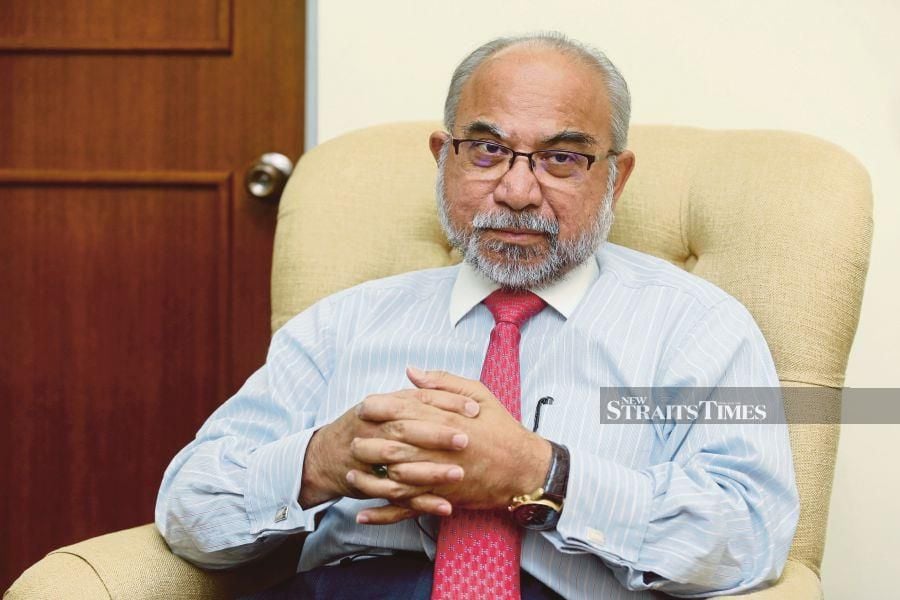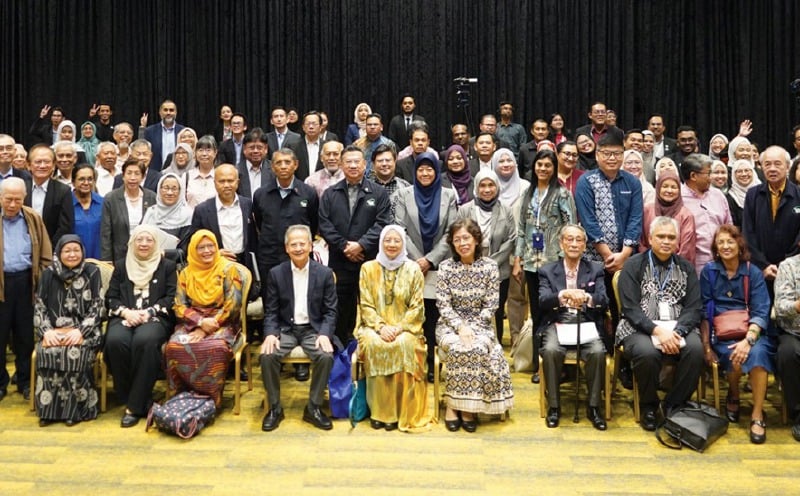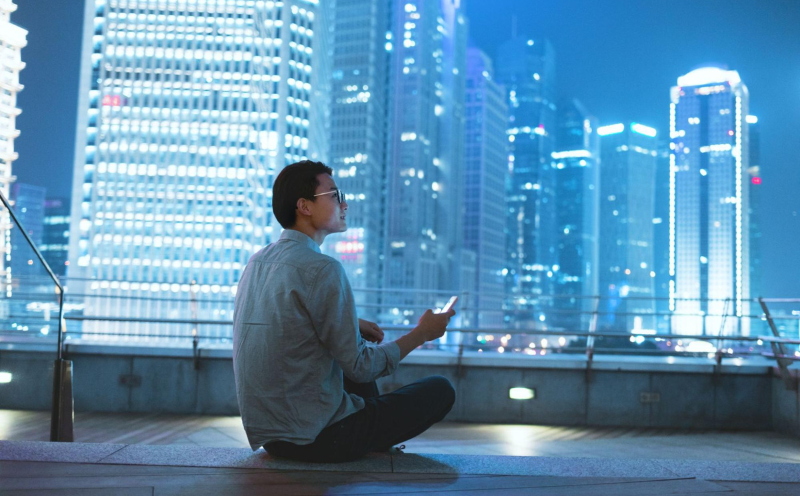INSTITUTE of Strategic and International Studies (ISIS) Malaysia chairman and chief executive Tan Sri Rastam Mohd Isa says going from Jakarta to New York to galvanise Non-Aligned Movement members to stop the war on Iraq was one of his most memorable diplomatic moments.
Read what he has to say as the NST sat down with him for an exclusive interview on his experience in treading the waters of international relations.
Question: Can you describe our main foreign policy thrust and if it is based on national interest, regional interest or geopolitical interest? How have these thrusts evolved over the years?
Answer: If you look at foreign policy, in general, a country’s foreign policy is dependent on the need to promote its own national interest. So if you look at Malaysia from the early days of the Federation of Malaya, it’s always to ensure our independence, sovereignty, development, peace and stability; not only within the country, but also within the region.
We have little control over what happens outside our region, but within the region, there’s still room to manoeuvre to try to influence developments — that’s always been the way foreign policy is conducted.
I would imagine that it still continues today on what’s important to us — security, national security, the security of our borders, our independence, the protection of our sovereignty, our citizens at home and abroad.
Q: There is a perception that we can’t do much when it comes to the issue of the South China Sea. Despite negotiations and the Code of Conduct (CoC), China is seen as being overly aggressive in the territory’s waters. How do you assess this issue?
A: The South China Sea is a very complicated issue. First, there is the issue of the maritime claims and territorial disputes involving Malaysia, Brunei, Vietnam, the Philippines, Taiwan, China and to a certain extent now, Indonesia. This is because of the Chinese declaration of the “nine-dash line” which impinge upon the exclusive economic zone, territorial and continental shelf areas of many of the countries, practically all the countries in Southeast Asia. The other issue is superpower rivalry. Since 2010 (to) 2011, when the Americans started bringing up the issue, it has created a sort of an action - reaction situation.
As a result, you have reclamation activities by China, construction of artificial islands, airfields and so on, and the Americans are ramping it up by having their freedom of navigation operations. Those are the two main issues.
For us, one is the territorial disputes, maritime boundary disputes. The situation is complicated because it doesn’t involve only China and Malaysia, but also other countries. We have a continental shelf boundary with Vietnam, continental shelf issue with Brunei, the Philippines and (compounded by) the Philippines’ claim to Sabah.
So how do we resolve this? At the moment, nobody has an answer. There were various suggestions and proposals made, but we let everything lie as it is first, (then) work on the CoC on the South China Sea. China and Asean should hold negotiations, but at the same time bring in other stakeholders like the United States, Japan, Australia and the Europeans, for example.
The Americans talk about the freedom of navigation, that the sea lanes should be kept free, that the law of convention of the sea should be respected. I’m sure China also wants freedom of navigation although they have not said it. They also need freedom of navigation in the Straits of Malacca, Bay of Bengal and the Indian Ocean.
Practically 80 per cent of Chinese trade passes through these waters, so if they take steps, for example, to create problems in the South China Sea, they may face problems elsewhere.
Q: Prime Minister Tun Dr Mahathir Mohamad recently spoke strongly at the United Nations on issues like Palestine, the Rohingya and Kashmir. What is your take on his speech to the international community?
A: It is important for those issues to be kept alive. When Tun Dr Mahathir took it up, it’s good for us and good for those
people who are affected. When the war in Syria broke out, the issue in Palestine was almost forgotten, moved to the back burner although there were attempts to find a solution.
Then, Donald Trump entered the Oval Office. He talked about “the deal of the century” (to bring peace between Israelis and Palestinians) and so on. But if you look at things being done, it’s not consistent. So it’s good that someone like Tun Dr Mahathir brought this up.
Similarly on the issue of the Rohingya, he spoke very strongly in New York, also on other issues that concerned the rights of people. We always have strong opinions about these issues, from apartheid, Palestine, Bosnia, the issue of invasions by foreign powers, whether invasion of Vietnam and Cambodia, Russian invasion of Afghanistan, American invasion of Grenada. We spoke up about all that.
Q: What do you say to people who accuse Dr Mahathir of interfering in the internal affairs of Hong Kong, India and the Middle East concerning Israel, Lebanon, Turkey and Syria?
A: There’s a difference between saying something about a situation and a real interference, meaning imposing ourselves on those people involved. Again, if you talk about democracy in the international system, we are free to talk about anything that we feel is unjust and not right. In the past, Dr Mahathir has spoken a lot about what happened in the United States, the way the US behaves towards her neighbours and other people. And there are a lot of people who talk about us too. It should not be a problem.
Q: What is your take on democracy in light of the protests in Hong Kong or the announcement by Trump to recognise Jerusalem as Israel’s capital?
A: We have to see this in terms of democracy at the national level and democracy in the international system. One of the grievances that Malaysia has had all this while is that there is no real democracy within the international system. Especially in the United Nations Security Council because five countries have veto power and can decide the fate of the rest of the world — the fate of people in Syria, Iraq, Yemen or anywhere else.
As an ideology, there are proponents of democracy, liberal democracy. In the US and Europe, they think that the values attached to their kind of democracy are the kind of values that should be spread around the world.
If you remember, (former US) president George Bush talked about this, hence the idea of democratising the Middle East. That probably gave the inspiration for what happened in Tunisia and subsequently in other countries. It could have also been the start of the move to democratise these countries through whatever means and support.
But look at what is happening in America. It is supposed to be the prime example of a democratic country, but there’s a lot of chaos and confusion in Washington. So this is the problem that we see around the world. As far as we or the world are concerned, let countries and peoples decide for themselves what kind of democracy they’re comfortable with.
Q: What can you say about the success of our foreign policy? Is Bosnia a success, for example?
A: If you use Bosnia as an example, yes. We were able to work with others to gather greater international attention and eventually got Nato (North Atlantic Treaty Organisation) and the international community to get involved to resolve the situation. It was a position taken by countries like Malaysia, Turkey, Pakistan and many others in the Islamic world. It finally persuaded the Americans to come in and help end the war.
Q: Having a strong stand on certain foreign issues could, to a certain extent, polarise the people in a multicultural country like Malaysia. What is your take on this?
A: This is unfortunate. We should be able to separate the issues (terrorism, humanitarian issues, etc). There are sympathisers of Jemaah Islamiah, IS (Islamic State) and many others. Do we talk so much about it? No. Some have been brought to court, charged and imprisoned.
People have to be able to sit back and think about this. What is this all about? I know some people are saying there is nothing wrong with being a sympathiser. But a sympathiser can also lead to having strong connections to certain things.
Sympathising with something is different from being a sympathiser, which takes it to another level. In the last few years, social media has played an important role in exposing the exploits of these people. In the days prior to social media, people went to Afghanistan, Chechnya, Bosnia, southern Philippines, all over the world, but they did not put up their pictures anywhere. Now, people know about it. It’s on Facebook, Twitter.
The question is, how did they get influenced? We can understand when it involves those who study abroad. We know they can get influenced in universities and mosques. But what about those who are here? This is the power of social media. If you can be conned into thinking that someone is giving you big business and (prompt you to) put in money, what’s the difference with this?
Q: What are your thoughts on the prosperity growth in the region and whether this could lead to something geopolitically?
A: A lot of people are talking about Asia being the future. What used to be called the Asian century is now coming to us. It is already here. If you look at China, India, Indonesia, it is projected that if things go the way they are, by 2050, China will be the No. 1 economy, the US second, then India, then Indonesia at number four. This after considering factors like trade wars and slowdown in the world economy.
I remember a couple of years back, there was a projection that by the year 2050, the Bangladesh economy would be larger than Malaysia’s. Of course, this is by virtue of having a larger population base and not necessarily in terms of per capita. But this depends on technology and how we embrace technology as well as peace and stability.
For Asean, prospects are good, except Asean has to consolidate, bring in its own internal resources to get things done. Right now, we still depend a lot on others and not just for foreign investments. Look at various Asean documents with other countries like Japan, the US and China. We depend on Asean-China cooperation or maritime funds and so on, while Asean members don’t spend enough on the Asean Secretariat where the budget is small.











